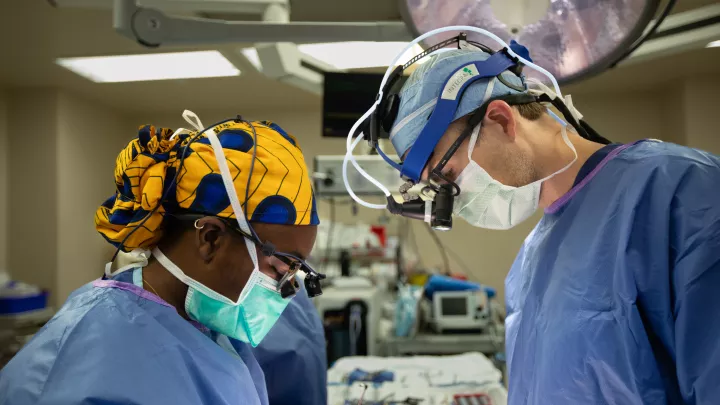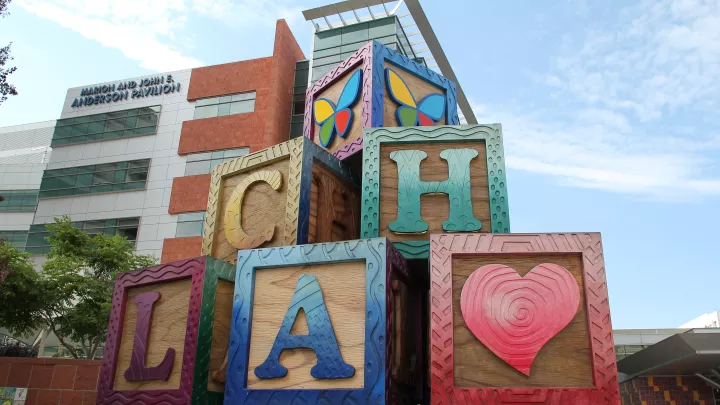Electrophysiology Program
When the heart beats, electrical impulses move through it. A heart rhythm disorder, or arrhythmia, happens when these electrical impulses don’t work properly.
If your child has symptoms of a heart rhythm abnormality, our cardiac electrophysiology experts can help. We provide comprehensive care for children who have heart rhythm disorders, also known as arrhythmias.
Pediatric Electrophysiology: Why Choose Us
Our doctors use electrophysiology (EP) studies to diagnose and treat heart rhythm disorders. Our program is among the largest in the nation and offers:
- Expert team: Our pediatric electrophysiologists (heart rhythm specialists) focus exclusively on helping children with heart rhythm disorders. They have successfully treated thousands of children with these conditions. Our dedicated team also includes cardiologists, technicians and nurses who have the expertise to manage pediatric arrhythmias and provide comprehensive care for your child.
- Innovative treatments: We use minimally invasive ablation procedures, including cryoablation, to fix arrhythmias at their source. Cryoablation is a freezing technique that is often safer and more precise than traditional heating (radiofrequency) ablation. We can also implant a number of different pacemaker and ICD devices, some commonly used and others more novel and used for specific types of cases.
- Genetic testing: Many pediatric arrhythmias are genetic. We work closely with our cardiogenomics team to provide genetic testing and counseling for families affected by hereditary heart rhythm disorders.
- Post-surgery care: After cardiothoracic surgery, some children experience heart rhythm abnormalities. If that happens, our specialists are prepared to quickly identify and correct these issues.
Pediatric Arrhythmias We Treat
We offer effective treatments for arrhythmias, including:
- Atrial flutter: Abnormal heart rhythm in the heart’s upper chambers
- Atrial fibrillation (AFib): Irregular or fast heart rate
- Bradycardia: Slow heart rate
- Long QT syndrome (LQTS): Condition that may cause a dangerous, erratic heart rate
- Sick sinus syndrome (sinus node disease): Disorder of the heart’s sinus node, which regulates the heartbeat
- Supraventricular tachycardia (SVT): Fast heart rate in the upper chambers of the heart
- Ventricular tachycardia (VT): Fast heart rate in the lower chambers of the heart
- Wolff-Parkinson-White Syndrome (WPW): An extra electrical pathway in the heart, which can cause a fast heart rate or, rarely, a dangerous heart rhythm.
Diagnosing and Treating Arrhythmias in Children
We use the full range of tests and procedures to diagnose children’s arrhythmias. Your child may undergo a noninvasive test first, such as a wearable Holter monitor or exercise (stress) test. Our experts analyze the results and discuss next steps with you.
Many children with an arrhythmia have normal heart structures and don’t need surgery.
Our team successfully corrects arrhythmias by using cardiac ablation during an EP study. Cardiac ablation uses heat or cold to destroy heart tissue that causes arrhythmias. Because our doctors can diagnose and treat the arrhythmia during one procedure, most children don’t need a separate procedure to treat it.
We also specialize in arrhythmia treatment for children who have congenital heart defects (present at birth). Some children with congenital heart defects can’t have catheter ablation. In these cases, a cardiothoracic surgeon may perform an ablation during heart surgery.
Heart devices that treat arrhythmias
Sometimes, doctors can’t correct an arrhythmia using ablation. In these cases, children may need a cardiac device to manage the arrhythmia. These devices include:
- Implantable cardioverter defibrillators (ICDs)
- Implantable recording monitors
- Pacemakers
Our electrophysiology team has years of experience with implanting these specialized devices. If one of these devices can help your child, we will walk you through every step of the process. We want you to feel empowered to make the best decision for your child.
Cardiac devices effectively manage pediatric arrhythmias. Many of our patients are enjoying full lives with the help of their pacemaker or ICD. Learn more about pacemakers and implantable cardioverter defibrillators (ICDs).


